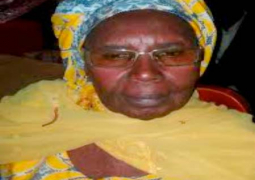The items included 225 Donkey drawn, 225 Horse hoe, 225 seeder Eco type, and 225 Ridger pies to the task team committee at GTTI to commence the production process.
Receiving the items, the Director of Academy at GTTI, Edward C. Mansal, returned gratitude to the Government of The Gambia through the Ministry of Agriculture for the confidence bestowed on GTTI in the production of the farming implements.
He said GTTI forever would be committed towards the realisation of Vision 2016, adding that at the beginning of next month the production would start.
Speaking at the handing-over ceremony held at the GTTI grounds, the Permanent Secretary 1 at the Ministry of Agriculture, Sait Drammeh, said the farming implement was to support small farm-holders to boost production towards the attainment of Vision 2016.
He recalled that there were several meetings between GTTI and MOA towards this noble mini-project.
The President had given his blessings to the project by providing funds from the GLF to the tune of D5 million as seed money to kick-start the process, said Mr Drammeh.
He thanked President Jammeh for coming up with the noble idea and assured him that it is going to be a continued process, saying this was just the beginning of the project and their aim is to get more farming implements to small farm-holders.
PS Drammeh also thanked the management of GTTI for accepting the partnership and assured of their continued partnership with them to produce more farm implements for the farming communities.
Also speaking at the handing-over ceremony was the Director General of the Department of Agriculture, Falalo Touray, who thanked GTTI for accepting the challenge.
DG Touray noted it is a collective endeavour and they must get involved as a collective enterprise so they have a collective responsibility in realizing the objective of the government.
“Why collective endeavour and collective responsibility: this is because one institution cannot do it alone. We must work together and get succeed together or fail together,” Mr Touray said.
“We cannot increase agriculture production and productivity if we do not mechanize and we cannot mechanize if institutions like GTTI are not on board,” he said, adding that this was an opportunity for all of them to work together.
Read Other Articles In Article (Archive)
Muslim Hands Gambia Reaches Out To Communities
Jun 15, 2009, 7:08 AM


